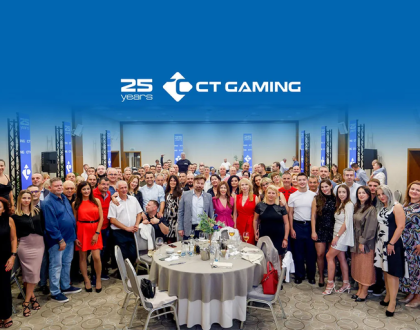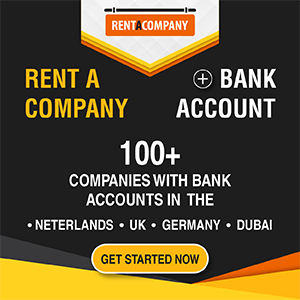How to Acquire an iGaming License

Over the years, the #iGaming industry has experienced significant growth, making it a lucrative #business opportunity for many entrepreneurs. However, one of the most crucial steps in establishing a legitimate online #gambling operation is acquiring an iGaming #license. This process is complex, time-consuming, and requires meticulous attention to detail to ensure compliance with the #regulations set by various jurisdictions.
From conducting due diligence and submitting thorough documentation to undergoing rigorous background checks and meeting strict financial requirements, the journey to acquiring an iGaming license is not for the faint of heart. Despite the challenges, obtaining an iGaming license comes with a seal of legitimacy, credibility in the industry, and access to a wider pool of players, making it a crucial milestone for any online gambling business.
Overview of the iGaming License Acquisition Process
Preliminary Research: Understanding Different Jurisdictions
For any company looking to acquire an iGaming license, extensive preliminary research is crucial. Understanding the various jurisdictions offering iGaming licenses is the first step in the process. Each jurisdiction has its own set of regulations, requirements, and costs associated with obtaining a license.
Preparing for Application: Documentation and Requirements
To successfully apply for an iGaming license, companies must prepare a comprehensive set of documentation and meet specific requirements set forth by the regulatory bodies. This can include but is not limited to financial statements, business plans, background checks on key personnel, and compliance procedures. It is crucial to have all necessary documentation in order and meet all requirements before submitting an application.
On top of the extensive documentation required, companies must also be prepared to undergo thorough scrutiny during the application process. Regulatory bodies will conduct background checks on key personnel, investigate the financial stability of the company, and ensure all compliance procedures are in place.
Selecting the Right Jurisdiction
One of the most crucial steps on the journey to acquiring an iGaming license is selecting the right jurisdiction. Choosing the right jurisdiction can significantly impact the success of your iGaming business, as different jurisdictions have varying regulations, costs, and reputations. It is crucial to carefully consider the criteria for choosing a jurisdiction and research popular iGaming licensing jurisdictions to make an informed decision.
Criteria for Choosing a Jurisdiction
One key criteria for choosing a jurisdiction is the regulatory framework in place. It is important to select a jurisdiction with a strong regulatory framework to ensure compliance with legal requirements and protect the interests of both the operator and players. Additionally, cost is a significant factor to consider, as licensing fees and taxes can vary widely between jurisdictions. Another crucial criterion is the reputation of the jurisdiction, as working with a reputable licensing authority can enhance the credibility and trustworthiness of your iGaming business.
Popular iGaming Licensing Jurisdictions
The journey to acquiring an iGaming license often leads operators to popular licensing jurisdictions such as Malta, Gibraltar, and the Isle of Man. These jurisdictions are known for their robust regulatory frameworks, established infrastructures, and favorable tax regimes. Malta, in particular, is a popular choice for many operators due to its reputation as a leading iGaming hub and membership in the European Union. Gibraltar and the Isle of Man also offer attractive benefits for iGaming operators, including political stability and access to the European market.
Criteria for Choosing a Jurisdiction: Regulatory framework, cost, reputation
The Application Process
After deciding to acquire an iGaming license, the next crucial step is to navigate through the rigorous application process. This process can vary depending on the jurisdiction in which you are applying, but there are some general steps that are commonly involved.
Step-by-Step Guide to the Application Procedure
| Step 1: | Prepare all necessary documentation including business plans, financial records, background checks, and any other required information. |
| Step 2: | Submit your application to the appropriate regulatory body and be prepared for a thorough review process which may include due diligence checks. |
| Step 3: | Engage with the regulatory authority throughout the process to address any queries or requests for additional information. |
Understanding Fees and Financial Requirements
Before launching on the journey to acquire an iGaming license, it is crucial to understand the financial implications involved. The fees for applying for and obtaining an iGaming license can vary significantly depending on the jurisdiction. Additionally, there are ongoing financial requirements such as taxes, compliance costs, and other operational expenses that must be factored in. It is crucial to carefully budget and plan for these expenses to ensure compliance and sustainability in the iGaming industry.
Financial stability is a key consideration for regulatory bodies when assessing license applications. It is important to demonstrate a solid financial standing and the ability to meet ongoing financial obligations to operate a successful iGaming business.
Compliance and Regulatory Requirements
Despite the lucrative nature of the iGaming industry, obtaining an iGaming license comes with a myriad of compliance and regulatory requirements. These requirements are in place to ensure fair play, protect consumers, and prevent illegal activities within the online gambling sector.
Technical Standards and Software Testing
Regulatory bodies governing iGaming licenses often mandate strict technical standards and require rigorous testing of software to guarantee the integrity and fairness of games. This includes testing random number generators, ensuring data encryption protocols are robust, and verifying that the software operates smoothly across different devices and platforms. Compliance with these standards is crucial for operators seeking to obtain and maintain their licenses.
Anti-Money Laundering (AML) and Know Your Customer (KYC) Policies
For iGaming operators, implementing comprehensive Anti-Money Laundering (AML) and Know Your Customer (KYC) policies is non-negotiable. These policies are designed to combat financial crimes such as money laundering and terrorist financing, as well as to verify the identities of players and ensure they are of legal age to gamble.
Customer due diligence, ongoing monitoring, and reporting of suspicious activities are important components of AML and KYC policies. Failure to adhere to these requirements not only puts the operator at risk of losing their license but also exposes them to legal liabilities and reputational damage. It is imperative that operators invest in robust systems and processes to uphold the highest standards of compliance in this area.
The Role of Corporate Structure and Management
Setting Up the Right Business Entity
Now, one of the crucial steps on the journey to acquiring an iGaming license is setting up the right business entity. Choosing the appropriate corporate structure, such as a limited liability company (LLC) or a corporation, is necessary as it can impact various aspects of your iGaming operation, including liability protection, tax implications, and operational flexibility. Consulting with legal and financial experts is highly recommended to ensure that your business entity aligns with regulatory requirements and long-term business goals.
Management and Operational Staffing Considerations
The management and operational staffing considerations play a vital role in the success of obtaining an iGaming license. The individuals responsible for key roles within the organization, such as the CEO, CFO, and compliance officer, must possess relevant experience and qualifications in the iGaming industry. Operational staffing also includes the hiring of customer service representatives, IT personnel, and marketing professionals to ensure the smooth functioning of the iGaming platform. Having a skilled and dedicated team is crucial to meeting regulatory requirements, maintaining operational efficiency, and delivering a high-quality gaming experience to players.
Post-Licensing: Operations and Maintenance
Not all the hard work is done once you have acquired your iGaming license. In fact, this is just the beginning of your journey in the online gambling industry. Now, it's time to focus on the operations and maintenance of your iGaming business to ensure its success and compliance with regulations.
Launching Your iGaming Business
One of the crucial steps after obtaining your iGaming license is launching your online gambling platform. This involves setting up the infrastructure, implementing security measures, integrating payment gateways, and testing all systems to ensure they are working correctly. It is necessary to have a smooth and successful launch to attract players and build a reputable brand in the market.
Ongoing Compliance and License Renewal
One of the primary tasks in the post-licensing phase is to ensure ongoing compliance with the regulatory requirements set forth by the licensing authority. This includes regularly updating your policies and procedures, conducting audits, and maintaining accurate records. Failure to comply with these regulations can result in license suspension or revocation, fines, and damage to your reputation.
An integral part of operating an iGaming business is license renewal. Licenses are typically valid for a specific period, after which you must apply for renewal. To successfully renew your license, you must demonstrate continued compliance with regulations, financial stability, and responsible gaming practices. It is crucial to start the renewal process well in advance to avoid any disruptions in your operations.
Overcoming Challenges and Setbacks
Common Pitfalls in the Licensing Process
Pitfalls are common obstacles that can hinder the iGaming license acquisition process. One of the most significant pitfalls is inadequate preparation. Many companies underestimate the complexities involved in obtaining a license and fail to adequately plan for the rigorous requirements. Additionally, submitting incomplete or inaccurate documentation can lead to delays or rejections, further prolonging the licensing process.
Strategies for Effective Problem-Solving
ProblemSolving is crucial when facing challenges during the iGaming licensing journey. One effective strategy is to establish a dedicated team with expertise in regulatory requirements and compliance. This team can proactively address potential issues and ensure that all necessary documentation is accurate and complete. Furthermore, maintaining open communication with regulatory authorities and seeking clarification when needed can help resolve issues in a timely manner.
Understanding the potential pitfalls and having a proactive approach to effective problem-solving can significantly expedite the iGaming licensing process. By being well-prepared, diligent, and communicative, companies can navigate challenges and setbacks with confidence and increase their chances of successfully acquiring an iGaming license.
Final Words
Taking this into account, the journey to acquiring an iGaming license is a complex and rigorous process that requires careful planning, thorough research, and a commitment to meeting industry standards and regulations. From initial due diligence to submitting the application and undergoing audits, each step is crucial and must be approached with attention to detail and precision.
By following the necessary steps and working closely with regulatory bodies, aspiring iGaming operators can position themselves for success in a highly competitive industry. While the process may seem daunting, it is necessary for ensuring compliance, building credibility with players and partners, and ultimately achieving long-term sustainability and growth in the iGaming market.
FAQs
What is the iGaming license acquisition process?
The iGaming license acquisition process involves several steps, including preliminary research on jurisdictions, preparing necessary documentation, selecting the right jurisdiction, and navigating through a rigorous application process. It requires careful planning and adherence to regulatory requirements.
Which jurisdictions are popular for iGaming licenses?
Popular jurisdictions for iGaming licenses include Malta, Gibraltar, and the Isle of Man. These regions are known for their robust regulatory frameworks, favorable tax regimes, and established infrastructures.
What are the main requirements for obtaining an iGaming license?
Main requirements include thorough documentation such as financial statements, business plans, background checks on key personnel, and compliance with technical standards. Regulatory bodies also assess financial stability and adherence to anti-money laundering (AML) and know your customer (KYC) policies.
How can companies prepare for the iGaming license application?
Companies should prepare by gathering all necessary documentation, understanding the specific requirements of the chosen jurisdiction, and ensuring that their business operations and financials meet the regulatory standards. Engaging with experts and consulting with regulatory authorities can also be beneficial.
What should be considered for ongoing compliance after obtaining an iGaming license?
Ongoing compliance involves regularly updating policies and procedures, conducting audits, maintaining accurate records, and ensuring that all operational aspects continue to meet regulatory standards. Timely license renewal and adherence to responsible gaming practices are also crucial.
Recommended Posts

Evolution’s Live Casino Studio Opens in Prague
October 5, 2024

Discover Mighty Symbols: Jokers by Wazdan
October 5, 2024

CT Gaming Celebrates 25th Anniversary
October 5, 2024



